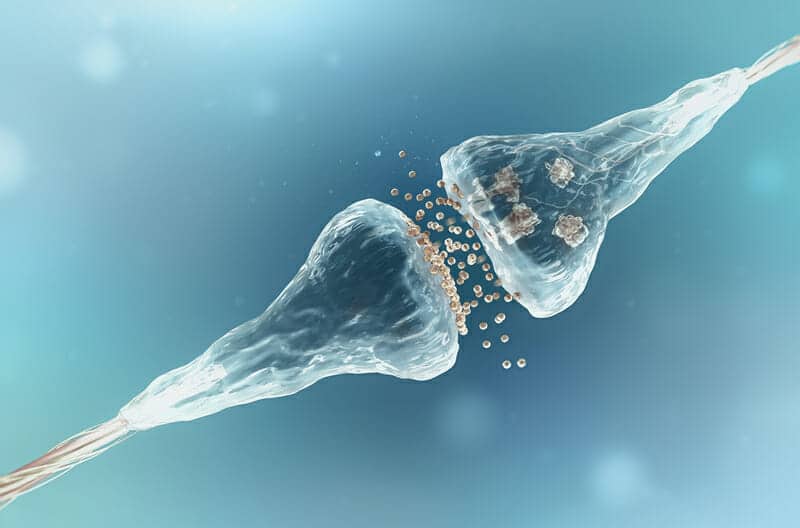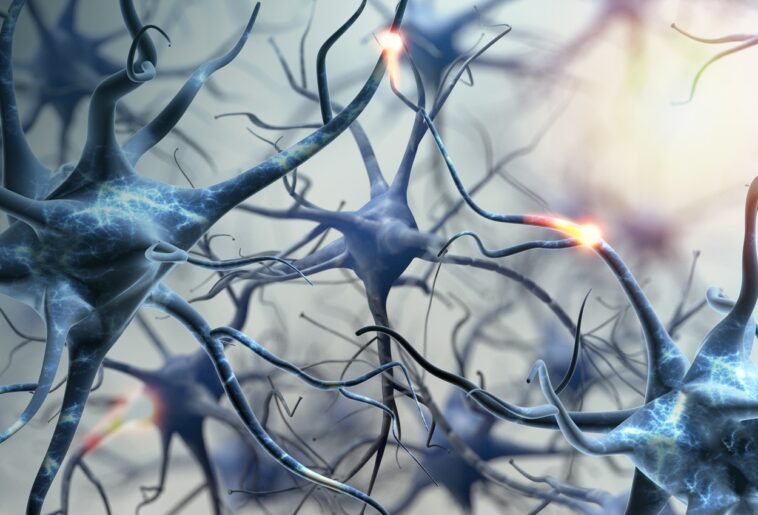Dihexa is a peptide that has neuroprotective properties and it has shown remarkable progress in improving cognitive function. It has been studied and is currently being used to help treat a wide range of neurological disorders and cognitive impairments.
It has shown promise in improving memory, learning, and information processing, and recent studies have shown that Dihexa may be able to improve the function of existing brain cells. The added benefit is its ability to attack amyloid beta proteins in the brain thus removing harmful proteins while the cells attempt to regenerate. Dihexa may prove to work wonders for neurological diseases such as Alzheimer’s Disease or maybe even Parkinson’s. There are many questions left to be answered.
1. How does it work?
Dihexa is a potent nootropic that crosses the blood-brain barrier and works to repair damaged nerve tissue while simultaneously stimulating the conditions for new synapses to develop. Dihexa activates your brain’s hepatocyte growth factor (HGF) and prepares the c-Met for action. This chain of chemical events promotes cellular division, motility, and production. In addition to promoting the conditions for repair and regeneration, Dihexa has also been shown to lessen the harmful effects of amyloid beta proteins in brain tissue.
Essentially, Dihexa begins to work once it is absorbed into the bloodstream and crosses over into the brain. It sets off a signal in your brain, telling your hepatocytes to get to work and their job is simple: metabolize carbs, lipids, and proteins, detoxify cells and activate immune cells. This combination of effects and the fact that Dihexa readily works on nerve tissue makes it suitable for a wide range of purposes.
2. What is peptide theory?

A peptide is a sequence of amino acids. These peptides work to control the function of cells. For example, increasing a particular peptide may trigger a response that causes cellular reproduction. Decreasing that peptide will slow down the rate at which cells replicate, but a different peptide is used to actually terminate cellular reproduction. There are thousands of naturally occurring peptides that exist and scientists are eager to see just what incredible benefits they have to offer the medical community.
Dihexa is a peptide that has neuroprotective properties and works to stimulate hepatocytes in the body. The combination of protecting nerve cells and stimulating their regenerative properties gives scientists hope for being able to improve neurocognitive disorders. There is still more to understand about Dihexa, but current studies have shown favorable results for patients recovering from a stroke and suffering from Alzheimer’s. With results like that, it is a wonder what a peptide such as this could do for the average person.
3. Are there side effects?
With any drug, whether it is pharmaceutical or holistic, there is always a risk involved. The same is true for nootropics such as Dihexa. This particular drug has the ability to cross the blood-brain barrier and have a direct impact on your cognitive function. This is not a drug to be taken lightly; you should always consult a medical professional before discontinuing medication or adding a new one to your regimen. It is essential to have an accurate medical record, in the event that you have a negative reaction, so that doctors can treat you to the best of their ability.
Reported side effects for Dihexa are scattered across a range of studies. There are repeated examples of subjects in clinical trials reporting nausea, mood swings, increased anxiety, and insomnia. Discontinuing use of Dihexa has been reported to cause jitters and irritability during the withdrawal phase, and patients returned to their baseline shortly after. Additionally, there is always the risk of an allergic reaction, whether it is to the drug itself or any of the other ingredients in the compound, especially if it is something you have never taken before. It can not be stressed enough, always keep an accurate record of the medication that you have taken.
4. What are the recommended dosages?

Dihexa has been approved by the FDA as a treatment for agitation in patients with dementia but has not been formally approved as an OTC treatment. It should only be prescribed by a licensed professional. Dihexa toxicity has not yet been reported.
Supplement companies recommend 10-20 mg daily for cognitive enhancement whereas manufacturers recommend the same dosage once a week. There are testimonials of individuals online stating that they have taken more than this amount but it has not been thoroughly reported on.
5. Is Dihexa right for you?
There is no one particular person who is capable of telling you what is right or wrong for your body. Still, there are plenty of educated professionals that you can consult with, and numerous research being done on a regular basis. You should use a combination of these sources to make the best possible decision in regard to your healthcare. If you are interested in knowing more about Dihexa, or the many other peptides that exist, do a little bit of research.
Many people stand to benefit from the addition of nootropics for cognitive function. Whether or not you decide to replace your morning cup of coffee with a peptide is a decision that should be made between you and your doctor.

Incredible Dihexa
Dihexa has many incredible capabilities which leave many in the medical community hopeful. Based on studies thus far, Dihexa appears to be, at minimum, a targeted brain enhancer in terms of neural connectivity and thought processing. With abilities like this, there is a lot to be excited about, whether you’re hoping to gain clarity and focus during a college lecture or you suffer from a cognitive disorder and are looking for treatment.
Outside of cognitive function, Dihexa has also shown promise in other studies relating to the repair and regeneration of cells in the body. Dihexa has also had positive results in helping to treat: insomnia and stress disorder, autoimmune disorders, osteoporosis, obesity, inflammatory disease, and balancing hormones. This is just the tip of the iceberg; there is much more to be discovered about Dihexa as studies go on.




